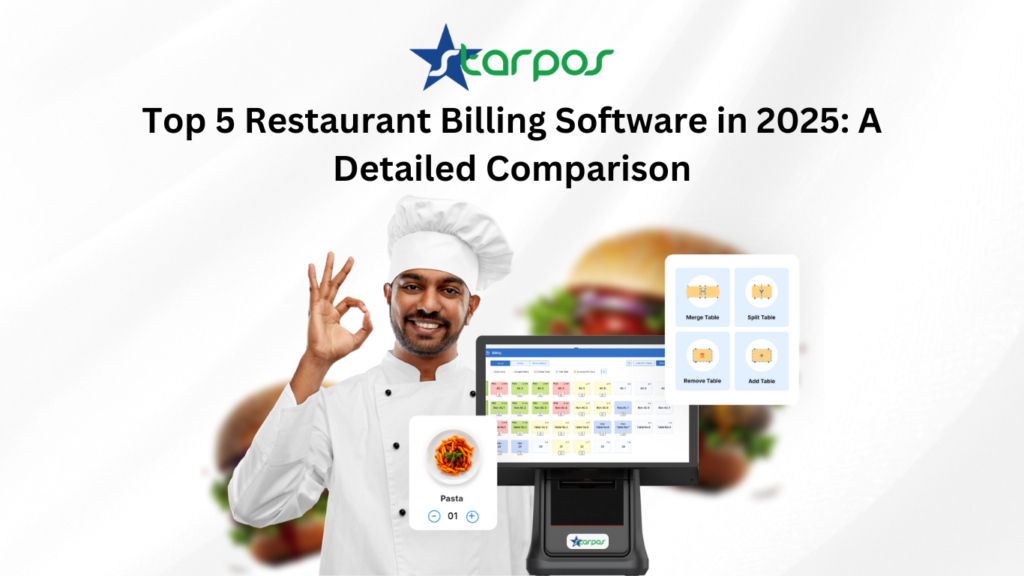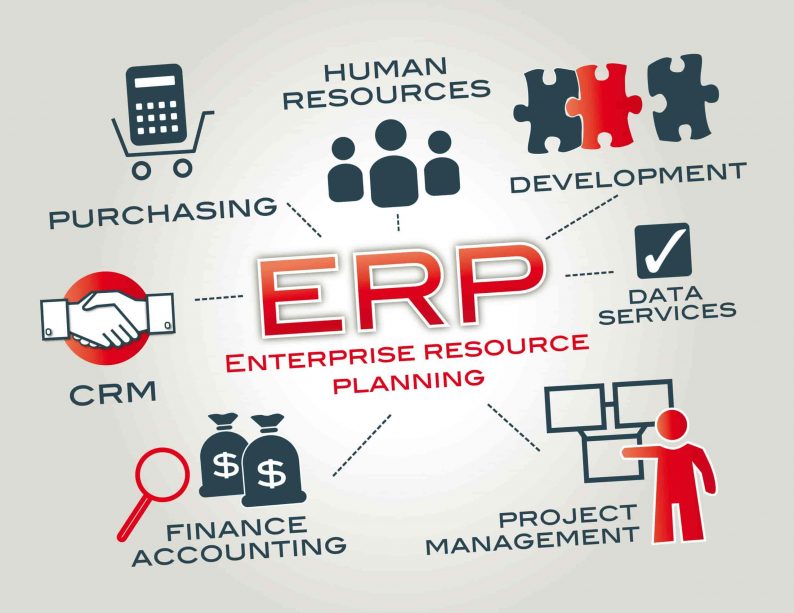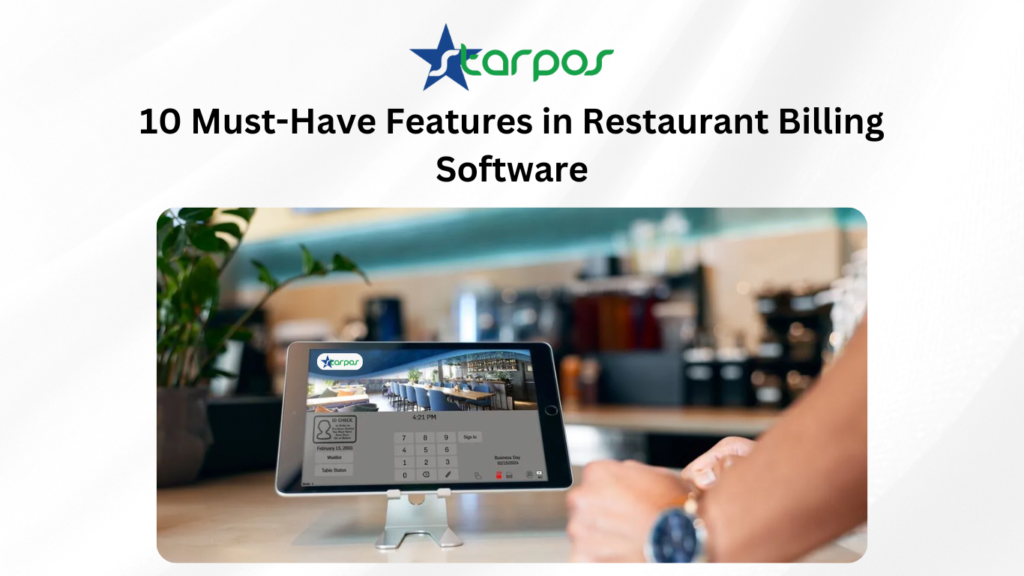
The restaurant industry is evolving rapidly, and efficient billing software is crucial for seamless operations. In 2025, numerous POS (Point of Sale) systems are available, each offering unique features to enhance restaurant management. Choosing the right billing software can streamline operations, improve customer experience, and boost profitability. In this blog, we compare the top 5 restaurant billing software solutions for 2025 to help you make an informed decision.
1. Square for Restaurants
Key Features:
- Cloud-based POS system with an intuitive interface
- Integrated online ordering and delivery options
- Advanced inventory tracking
- Employee management and payroll integration
- Customizable menu management
Pros:
✅ Easy to use and set up
✅ Affordable pricing for small businesses
✅ Excellent customer support
Cons:
❌ Limited customization for large enterprises
❌ Requires a stable internet connection
2. Toast POS
Key Features:
- Android-based POS with offline functionality
- In-depth reporting and analytics
- Kitchen display system (KDS) integration
- Contactless payment and digital receipts
- Customizable loyalty programs
Pros:
✅ Robust features for full-service restaurants
✅ Offline capabilities ensure uninterrupted service
✅ Advanced integrations for restaurant chains
Cons:
❌ Higher pricing for small businesses
❌ Requires proprietary hardware
3. Lightspeed Restaurant
Key Features:
- Cloud-based POS with multi-location management
- AI-powered analytics and reporting
- Ingredient-level inventory tracking
- Table management and reservations
- Seamless third-party integrations (UberEats, DoorDash)
Pros:
✅ Ideal for multi-location restaurants
✅ Extensive third-party integrations
✅ Scalable for growing businesses
Cons:
❌ Learning curve for beginners
❌ Slightly expensive subscription plans
4. TouchBistro
Key Features:
- iPad-based POS system with offline support
- Built-in CRM and loyalty programs
- Advanced menu management with modifiers
- Integrated payment processing
- Multi-language support for international use
Pros:
✅ User-friendly interface for staff
✅ One-time licensing fee available
✅ Excellent for small to medium-sized restaurants
Cons:
❌ Limited third-party integrations
❌ Requires Apple devices
5. Starpos Restaurant POS
Key Features:
- Cloud and on-premise deployment options
- Prepaid card support for cafeteria-style billing
- Recipe and inventory management
- Real-time sales tracking and reporting
- HRMS and feedback management integration
Pros:
✅ Tailored for food businesses of all sizes
✅ Seamless prepaid card integration for corporate cafeterias
✅ All-in-one solution with HR and inventory management
Cons:
❌ Customization may take time
❌ Requires initial training for new users
Conclusion
Choosing the best restaurant billing software in 2025 depends on your business needs. If you run a small café, Square for Restaurants might be a great fit. For large restaurant chains, Toast POS and Lightspeed Restaurant offer extensive features. TouchBistro is ideal for small businesses looking for an iPad-based solution. If you’re looking for a comprehensive ERP-integrated solution, Starpos Restaurant POS is an excellent choice.
Investing in the right billing software can streamline your operations, enhance customer service, and drive business growth. Evaluate your restaurant’s needs and choose a solution that aligns with your goals.


